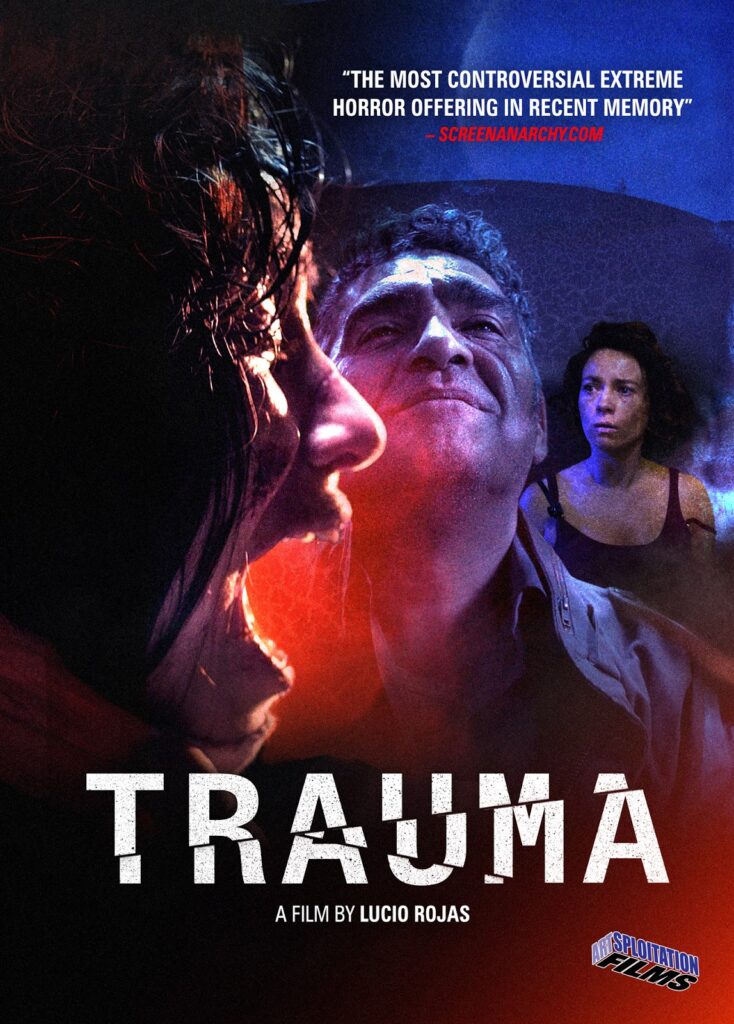TRAUMA ***** Chile 2017 Dir: Lucio A Rojas. 106 mins
There’s no shortage of self-styled “extreme” horror movies boasting an “Inspired by real events” tag – and there are also plenty of 21st century additions to the enduring rape-revenge sub-genre. This Chilean movie doesn’t care about any of this – it just wants to punish its audience from start to finish, depriving them the cathartic second-hour thrills of the usual format and spitting us out at the end, even more jaded at the human race.
The opening – in Pinochet-era Chile- might initially look like any other torture movie sequence, but it crosses a line few would dare: a young man is forced to fuck his heavily wounded mother at gunpoint. Even after she has been shot in the face. Writer-director Lucio Rojas knows we will be too disgusted by this spectacle to be aroused by the deliberately prurient subsequent scene – a graphic lesbian tryst between the two attractive protagonists (Cataline Martin, Macarena Carrere) – and the juxtaposition jars. The women head out to the country for a weekend stay with two female friends, while periodic cutaways hint at the immense suffering to come, courtesy of the grown-up version of the young man we met in the prologue, and his understandably messed-up son. TRAUMA shares its title with several genre films from years gone by (including one of Argento’s weakest giallo) and is as impressively cinematic as another recent rape-revenge movie with a similarly sparse one-word title, REVENGE. The emphasis on unflinching violence and wince-inducing physical injury may bear comparison to the harshest of the new wave French horror cinema, but the overall nihilistic tone and unrelenting pessimism bring it closer to A SERBIAN FILM. The central home invasion set piece is utterly harrowing to watch, captured by a handheld camera that, at times, recoils as if in horror at the force of what it is observing. The savagery perpetrated by the father-son duo (chillingly played by Daniel Antivilo and Eduardo Paxeco) forms the basis of the overriding theme that violence begets violence, across generations. The heroine’s final realisation is the spark for one of the most despairing conclusions in modern horror: it’s the only appropriate fade-out to the film’s extended howl of rage at a shocking period of Chilean history…and the misery it wrought.
Review by Steven West

